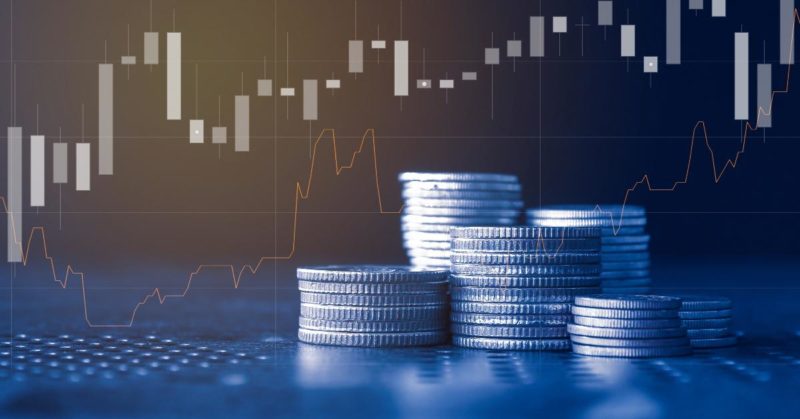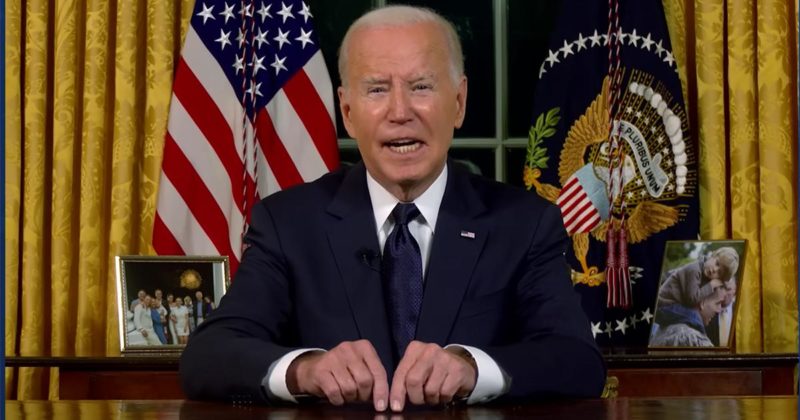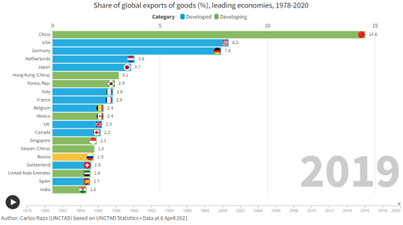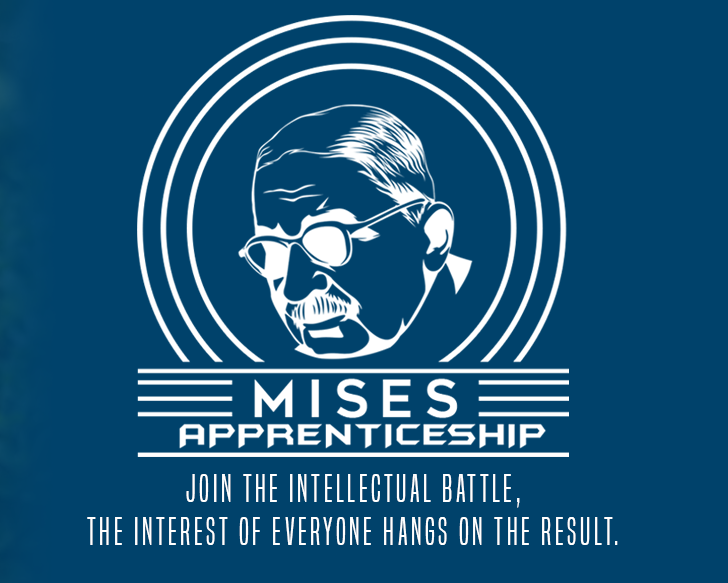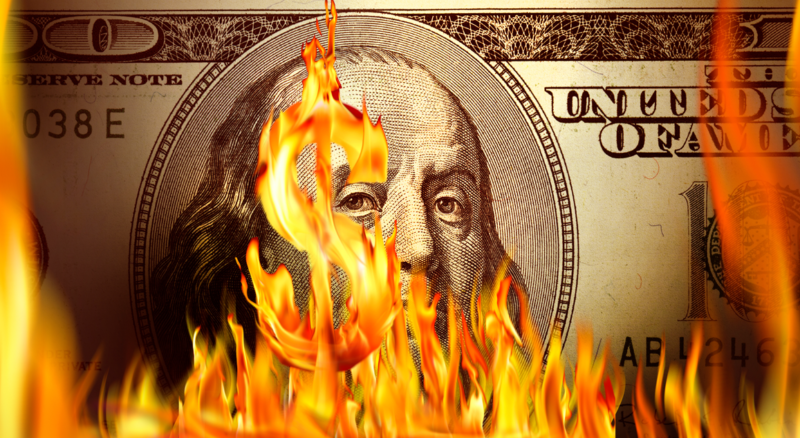Category Archive: 6b.) Mises.org
A Fed-Induced “Neutral” Interest Rate Is a Contradiction in Terms
The New York Federal Reserve said on Tuesday, September 5, 2023, that the estimate for the neutral rate for Q2 has eased to 0.57 percent from 0.68 percent in Q1. Analysts typically translate that rate into a real-world setting by adding the neutral rate to the Fed’s 2 percent inflation target. The current reading suggests that a federal funds rate of around 2.5 percent would represent a neutral setting. Given that the Fed’s current target rate...
Read More »
Read More »
The Objective Science of Subjective Value
While most economists admit that value is subjective, they still err by concentrating on scarcity and choice instead of purposeful action by individuals.
Original Article: The Objective Science of Subjective Value
Read More »
Read More »
Turkey Is Sustaining Major Inflation. Something Has to Give
Bloomberg reports that price inflation in Turkey was more than 60 percent in September. The 61.5 percent reading was released by the Turkish government’s statistical office. Being on the ground in Turkey for Hans-Hermann and Gülçin Hoppe’s Property and Freedom Society meeting, I can say the vibe was not hyperinflationary. The shelves are not empty and the port city of Bodrum is booming. Professor Hoppe told the crowd Bodrum has grown from a...
Read More »
Read More »
Thanks to the Combination of the Fed and IP, Snow White 2024 Is a Terrible Movie
Because Federal Reserve policies distort the economy and create perverse incentives, Disney also must deal with intellectual property issues. The combination of the two will ruin the Snow White story.
Original Article: Thanks to the Combination of the Fed and IP, Snow White 2024 Is a Terrible Movie
Read More »
Read More »
Don’t Fall for Biden’s Latest Talking Point
As the long-hyped Ukrainian counteroffensive against Russia stalls and a new war in Gaza draws the world’s attention, American support for funding Kyiv’s war has waned. In an effort to reverse this, the Biden administration is changing its messaging. A Politico report from last week details how White House aides are now telling members of Congress to sell Americans the lie that continuing to send money and weapons to Ukraine is good for the...
Read More »
Read More »
How German Exports Lost the Race with China
Germany is the euro area’s economic powerhouse and most competitive economy. It accounts for close to 30 percent of the euro area gross domestic product (GDP) and has recorded sizable current account surpluses since the introduction of the euro. Substantial fiscal and labor market reforms in the early 2000s propelled the German economy.
However, these golden days seem all gone now. Years of misguided energy policies—part of the government’s...
Read More »
Read More »
A Rothbardian Critique of Effective Altruism
"Effective altruism" has become a buzzword with modern progressives who seek to combine state power and billionaire-funded nonprofits to redirect resources.
Original Article: A Rothbardian Critique of Effective Altruism
Read More »
Read More »
China’s Inefficient and Unsustainable Central Planning
Over one hundred years ago, Ludwig von Mises wrote about the impossibility of successful rational economic planning under socialism. Yet China is still trying, even while its blend of markets and socialism results in shortages and surpluses. This article examines three contemporary initiatives spearheaded by Xi Jinping, each marked by an inherent problem: food insecurity, the aging crisis, and the real-estate bubble. Each problem was created by...
Read More »
Read More »
The Inherent Evils of Centrism
Most people will claim to be political and social “moderates” yet actually accept extreme socialist viewpoints.
Original Article: The Inherent Evils of Centrism
Read More »
Read More »
Government-Enforced Paid Family Leave Is Not Pro-Family
Christianity Today magazine enthusiastically endorses government-enforced family leave, calling it “pro-family.” Government coercion, however, is still violence, not something to be championed.
Original Article: Government-Enforced Paid Family Leave Is Not Pro-Family
Read More »
Read More »
Statism Is the Cause of the Israel-Hamas War
The State is an organized crime racket. It appropriates wealth by coercion and regularly uses force in violation of the n0n-aggression principle. The State is a parasite that perpetuates itself at all costs and extends itself by any means possible. Regardless of its putative leaders, the State grows and increases its power at the expense of its hosts and others who fall victim to its predations.
As Hans-Hermann Hoppe poignantly wrote, States are...
Read More »
Read More »
Mises Institute Announces Dr. Thomas DiLorenzo as President
For Immediate Release
Auburn, Ala. – The Mises Institute announced that Thomas DiLorenzo has been named its next president, following approval by its Board of Directors.
DiLorenzo has a long and distinguished career as an academic economist, author, and speaker. He was Professor of Economics at Loyola University, Maryland, from 1992 to 2020. He served previously as the Probasco Chair of Free Enterprise at the University of Tennessee at Chattanooga,...
Read More »
Read More »
Mises Apprenticeship 2024
"Economics must not be relegated to classrooms and statistical offices and must not be left to esoteric circles. It is the philosophy of human life and action and concerns everybody and everything. It is the pith of civilization and of a man's human existence." —Ludwig von Mises
The strength of the Austrian school has always been grounded in its ability to speak clearly about the issues vital to preserving human civilization. While there...
Read More »
Read More »
Canadian Digital Protectionism Gravely Threatens Free Speech
In 2023, Canada’s parliament passed two significant pieces of legislation, Bills C-11 and C-18, both of which have stirred debates and concerns regarding their potential impact on online freedom and political censorship. Bill C-18, commonly known as the Online News Act, was introduced in the forty-fourth Canadian Parliament and received royal assent on June 22, 2023. This legislation introduces a framework mandating digital news intermediaries,...
Read More »
Read More »
Rothbard on Suits for Defamation
David Gordon explains Murray Rothbard's famous assertion that laws against libel and slander should not be on the books.
Original Article: Rothbard on Suits for Defamation
Read More »
Read More »
No Monetary or Political Bailouts for Belt-and-Road Initiative Debtors
It’s been more than three decades since the Berlin Wall fell and the disintegration of the Soviet Union. At the time, when everyone knew that the time for the “mothership” of socialism had come, China didn’t want to take the Soviet Union’s position but opted for an ambiguous role. In the three decades after the downfall of the Soviet Union, it was clear which country was at the top of the world.
Those were the times to which the Beltway wanted to...
Read More »
Read More »
Government Agencies Exploit Data Brokers as End-Around to Legal Restrictions
Even when Congress tries to restrict government agencies from illegally gathering information on people, the agencies simply exploit legal loopholes or just break the law—without consequences.
Original Article: Government Agencies Exploit Data Brokers as End-Around to Legal Restrictions
Read More »
Read More »
How the Fed Undermines Prosperity
The boom-and-bust cycles are not natural to a market economy, contra Keynes. Instead, government through monetary manipulation creates them—and then politicians blame markets themselves.
Original Article: How the Fed Undermines Prosperity
Read More »
Read More »
Why Must Supply Precede Demand? Understanding Economic Foundations
Popular economic thinking holds that consumer spending is the most important driver of the economy. Actually, demand can’t exist without something first being supplied.
Original Article: Why Must Supply Precede Demand? Understanding Economic Foundations
Read More »
Read More »
Mounting Deficits Mark the US’s Road to Ruin
According to the U.S. Treasury, year-end data from September 2023 show that the deficit for the full year 2023 was $1.7 trillion, $320 billion higher than the prior year’s deficit. As a percentage of GDP, the deficit was 6.3%, an increase from 5.4% in FY 2022. This means that the United States will likely post the worst GDP growth excluding debt increases since 1929, or, in other words, that the country is in a recession disguised by bloated...
Read More »
Read More »









